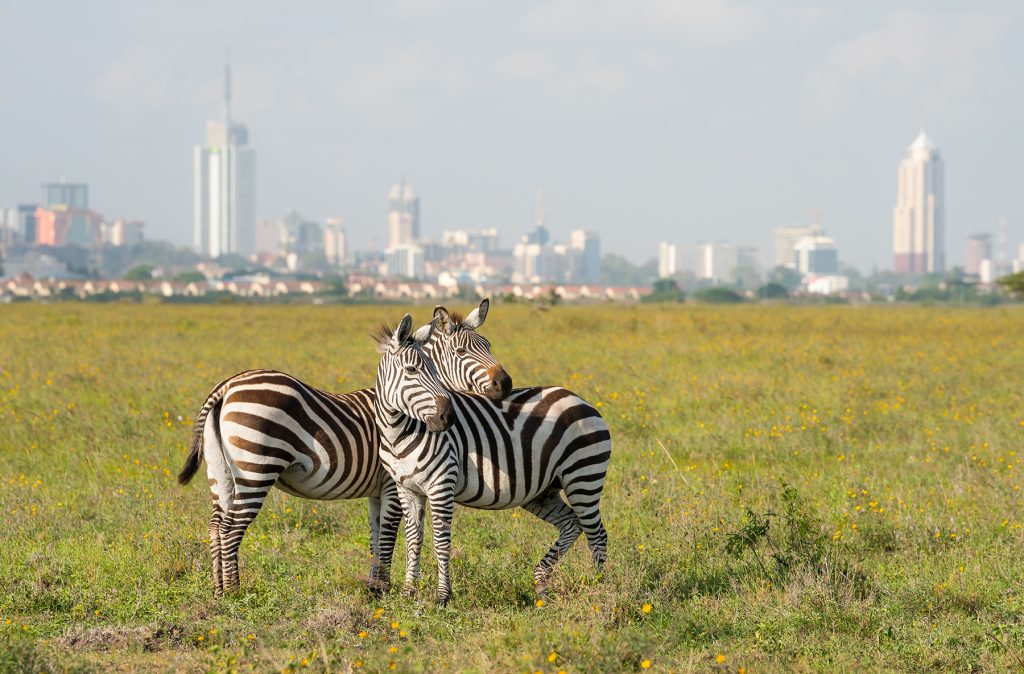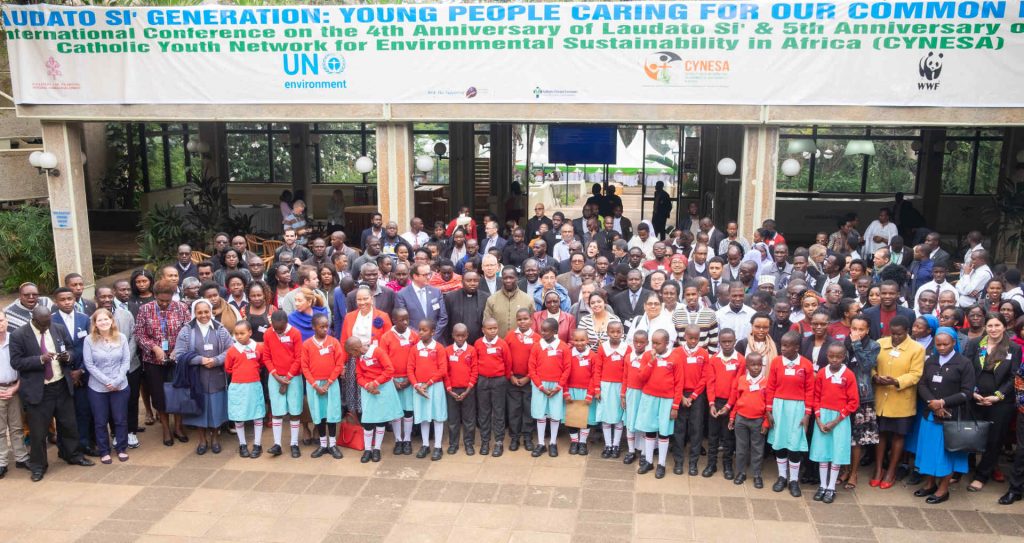A report by Kelly Moltzen, OFS, USA
New and exciting initiatives, like the Great Green Wall across 11 African countries, were addressed at the The Laudato Si Generation Conference held in Nairobi, Kenya July 15 and 16. It focused on the role of faith and religion in the care for our common home, the role of youth, the role of indigenous communities, and the role of Africa. Conference organizers included Catholic Youth Network for Environmental Sustainability in Africa (CYNESA), the Vatican Dicastery for Integral Human Development, UN Environment, and WWF Africa.

Some of the main takeaways were:
- The WWF effort, called the New Deal for Nature and People, which plans to ask heads of state to adopt a policy to halve the footprint of production and consumption by 2030.
- The Great Green Wall (and forthcoming film of the same name) and Laudato Tree initiatives supported by Don Mullan and the Society of African Missions from Ireland which plans to “build a wall of trees” spanning 11 countries and measuring 8,000 km long and 15 km wide. This 8 billion dollar project is expected to help with desertification caused by climate breakdown. The trees will help restore degraded land — reducing erosion, retaining moisture in the soil, improving plantings, and providing jobs and hope for the millions of people from sub-Saharan Africa who were expected to migrate.
The Irish government has provided $1.2 million to the UN Convention to Combat Desertification for research into what is needed to actually create the Great Green Wall, including the kind of dialogues among tribes that would get everyone in a community to agree to the job-creating initiative for many people across the Sahel.
- An Interfaith Rainforest Initiative called REPAC which is working on the Congo basin. It is a sister effort to REPAM which is working on the Amazon.
- The 50th Anniversary of Earth Day in 2020, during which the Vatican is planning to get 50 dioceses, 50 schools, 50 universities, 50 hospitals, 50 banks, 50 cities and 50 farms to lead by example and commit to Laudato Si practices.
- Individual CYNESA country chapters which are planting trees, conserving wildlife, and disseminating Laudato Si in local languages.
- The Faith for Earth initiative of UN Environment which is planning to start a youth forum.
During the conference some serious issues were also addressed:
- Access to land especially for indigenous peoples is a serious issue.
- Due to their activism, groups which speak up and challenge governments are putting themselves at risk, and are being threatened.
- Air pollution especially in Nairobi is a huge problem. The fuel is highly toxic and lacking in regulatory standards: “Pollution and poor air quality are now killing more Africans than AIDS/HIV.” UN Environment has called for a stop to the flow of dirty fuel to West Africa and written about how the idling of buses is contributing to the air pollution.
- The Catholic Youth Network for Environmental Sustainability in Africa (CYNESA) is comprised of many young adults who are just finishing college and looking to network for potential job opportunities. There are many educated youth who are in need of green job opportunities. Yet illiteracy is still at 46% in Africa.
Youth need to be savvy if they want to be in dialogue with the business sector through the UN. On the one hand, they want to tell businesses that youth are aware of what businesses are doing and are forming to fight against it. On the other hand, some African businessmen are destroying the environment but may not be aware of the impact of their actions and need to be sensitized. The business community provides statistics about employment; but environmental advocates are not as organized when it comes to having statistics prepared about the potential of green job creation.
The trip also provided the opportunity to meet with Sister Mary Frances Wangari Sebastian and YouFra member Steeven Kezamutima in the JPIC Franciscans Africa (JPICFA) office in Kenya. They promote lobbying and advocacy, peacebuilding and conflict resolution, building upon the trainings they have had with Franciscans International to engage people at a grassroots level. They have successfully advocated for the Mukuru slum in Nairobi to be recognized as a Special Planning Area by the national government. Every year since 2014 they have held an Interfaith Youth Forum for Peace and Environment. The 2019 forum on September 20-21 includes participation in the Fridays for Future worldwide climate strike initiated by Greta Thunberg, as well as the International Day of Peace. Steeven hopes this will connect with other Laudato Si Generation efforts around the world. He has also created a documentary about Fr. John Kaiser, an American priest who served in Kenya for decades and was assassinated for standing up against human rights abuses; and has partnered with the Capuchin Franciscans to create Capuchin TV episodes such as Earth in 2050, Green Talent Show and Birthday Tree Planting.
JPICFA used to receive funding from Misean Cara from Ireland; however, because there are no Irish missionaries in their region currently, Misean Cara has not renewed their funding. I believe their efforts should be funded in Nairobi and that we should find a way to bring this work elsewhere, including the United States.
The JPICFA efforts, as well as the overall lessons from the Laudato Si Generation conference, provide examples of how the rest of us can better link the elements of JPIC, Formation, Youth and Young Adults, and Ecumenical-Interfaith Relations. My hope is that these stories from Africa may inspire us to find new ways to integrate these efforts more strongly together, to form and engage more youth & young adults and all people to work on JPIC issues together, through ecumenical-interfaith relationship-building and collaboration.
Support for the conference was provided by the Catholic Climate Covenant and Partnerships for Change. The Holy See mission in Nairobi, led by the Apostolic Nuncio, was also a valuable contributor to the conference.

